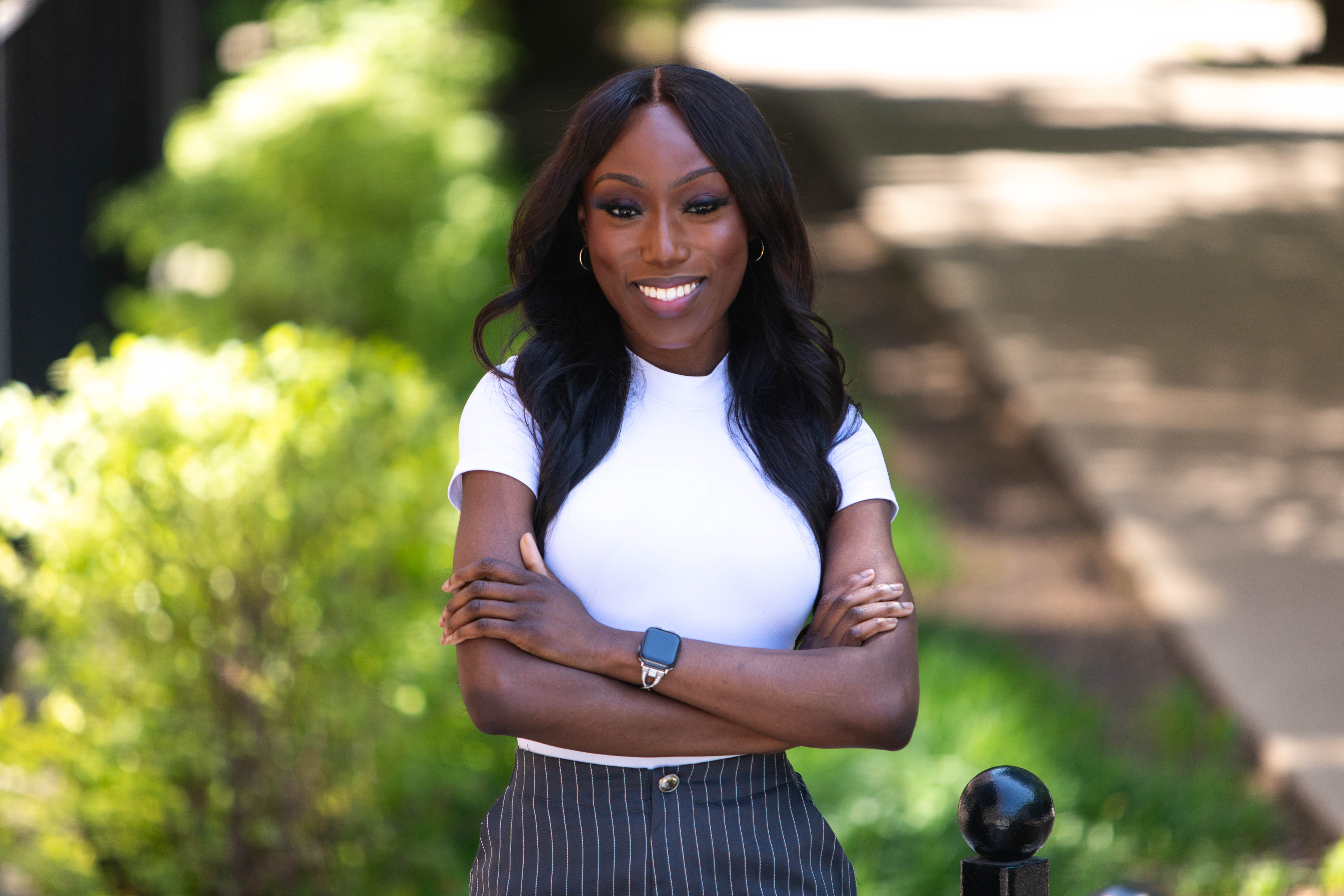 (Photos by Keeton Holder/DePaul University)
Linda Osei, College of Education
Degree:
(Photos by Keeton Holder/DePaul University)
Linda Osei, College of Education
Degree: Master of Education, Clinical Mental Health Counseling
Hometown: Chicago, IL
Why did you choose this degree and career path?
I love the stories that people carry. Everybody carries a unique story. Sometimes people don't have the chance to share theirs or to allow somebody to walk with them as they journey through life. We all need language for what we're going through. And I think that's why I love counseling so much. It's because people get those “aha” moments or people get those moments even where they just feel seen, safe and validated.
Was there a specific experience in your life that sparked your college major or career path?
Growing up in a Ghanaian household, I observed that there were limited opportunities for open discussions about feelings or for delving into deeper questions to understand each other as individuals. I've always been a person for people to come to discuss their problems. So, when I realized I could turn these skills into a career, engaging in one-on-one conversations and helping people on a personal level became enjoyable for me. It just felt like the perfect fit.
As a clinician of color, especially one who works with kids, teens and young adults, I recognize the importance of allowing individuals, especially those from marginalized communities, to simply feel and express themselves. Many of us were never given the opportunity to understand and articulate our emotions or feel comfortable discussing them. That's why I feel it's so important for me to pursue this path.
How would you use your degree to break down those barriers that we see in the Ghanaian community?
I think it goes back to teaching people what it means to feel and how to access their emotions. I like to use cognitive behavioral therapy, which helps clients change their thinking patterns, but also helps them identify their emotions. I often use feelings wheels during sessions. When clients share their experiences, I pause and encourage them to identify which emotion resonates with their story. Many people struggle to classify or describe their emotions. Starting with understanding what an emotion is and how to identify it is crucial. People of color, from generations past, have been conditioned to prioritize work over self-care. We need to create space to check in with ourselves and acknowledge our emotions. It's important to recognize how generational trauma affects us and gain language to articulate our experiences, so we can navigate them together.
What’s your favorite thing about DePaul?
One of my favorite parts about DePaul is how it stays true to its mission, particularly regarding community service. The counseling program challenges us to engage in service. Throughout the program, from multicultural counseling to intro to counseling, there's a strong emphasis on thinking beyond ourselves, advocating for others and promoting social justice. I appreciate that this also aligns with DePaul's mission of advocacy and servanthood. It's helped me become more culturally competent, preparing me to serve diverse populations in my future career.
What’s next for you?
Following graduation, I’ll be joining the Mosaic Nature Therapy and Wellness PLLC as a pre-licensed professional counselor. I'll be working with a mixed caseload, including children and lots of young adults. I will see clients from varying backgrounds and with different conditions, but my specialty is working with anxiety and depression.
What advice would you give to future DePaul students?
It's important to pace yourself on this journey. My time at DePaul helped me gain confidence in what I'm doing, who I want to work with, and what I want to achieve. It's been a gradual process of self-discovery and growth. Remembering your 'why' is crucial, especially when things get overwhelming. It gives you the motivation to keep moving forward.
Meet more of the class of 2024 here.